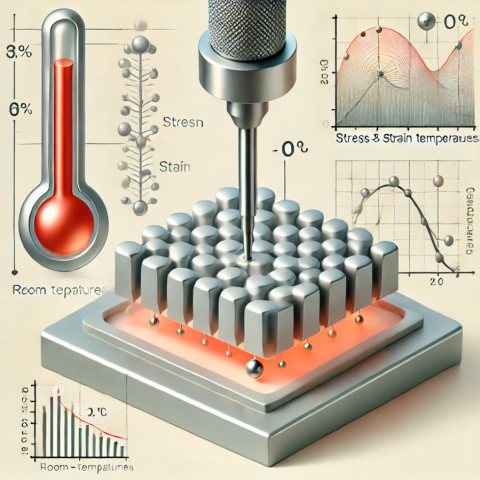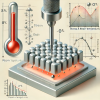NOMATEN ONLINE-SEMINAR February 4: Nanoindentation at room and elevated temperatures of metal and ceramic based materials
NOMATEN Online Seminar
Location: gotomeeting room - https://meet.goto.com/NCBJmeetings/nomaten-seminar
Seminar date: February 4th, 2025, 1 PM
Nanoindentation at room and elevated temperatures of metal and ceramic based materials
Speaker name: Dr. Jovana Ružić
Speaker affiliation: Vinča Institute of Nuclear Sciences, University of Belgrade, Serbia.
Abstract:
As the investigation of the materials' nanoindentation behavior is a nondestructive and powerful tool in the field of micromechanics, it is of no surprise that it has been attracting more attention from both researchers and engineers. Nanoindentation is a very versatile technique and in recent years it has been performed at room or elevated temperatures, in air, vacuum or protective atmosphere, with various types of indenter tips. One huge advantage is that with careful preparation of measurement procedures, it can be applied to any kind of material such as ceramics, metals, biomaterials, etc. Nanoindentation results provide information regarding mechanical behavior at nano levels (detection of the local elastic properties, and hardness), and directly imply the influence of the size effect, the interaction of the constituents, reinforcements and matrix, etc. Lately, the number of publications related to micromechanics constitutive models has been rapidly growing, which outlines the need for confirmation of these simulation results by experimental work. Consequently, in recent years, nanoindentation has become a vital technique that supports both experimentalists and theoreticians with their research.
Bio:
Dr. Jovana Ružić is a senior research associate at the “Vinča” Institute of Nuclear Sciences, University of Belgrade, National Institute of the Republic of Serbia. She received her PhD degree in metallurgical engineering from the Faculty of Technology and Metallurgy, University of Belgrade (2014). Most of her research activities are focused on micromechanics of metal and ceramic based materials. She has published over 30 scientific papers in peer-reviewed international journals, with over 700 citations. Dr. Ružić has gained significant scientific experience as a postdoctoral researcher at the National Institute for Materials Science (Tsukuba, Japan) in period of 2016-2018, and Marie Skłodowska-Curie Individual Fellow at the Institute of Information and Communication Technologies, Bulgarian Academy of Sciences, Sofia, Bulgaria (November 2018 – April 2020). Currently, she is involved in the national project (program PRIZMA) financed by the Science Fund of the Republic of Serbia (2023-2026). Dr. Ružić is the head of the Mechanical Testing Laboratory in the Center of excellence CEXTREME (Center for the synthesis, processing and characterization of materials for use in extreme conditions), at the “Vinča” Institute.







